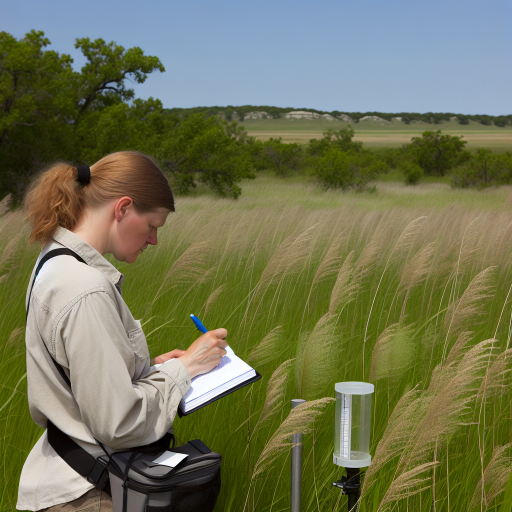Introduction
Welcome to the world of fishing! In this section, we will explore the health benefits and risks associated with being a US fisherman.
It is important for individuals considering a career in fishing to understand these aspects.
The life of a fisherman is an intricate tapestry woven with threads of both hazards and rewards.
On one hand, the allure of the open sea, the thrill of the catch, and the camaraderie of fellow seafarers paint a picture of adventure and fulfillment.
Yet, beneath the surface lies a reality of physical strain, occupational risks, and the ever-present threat of nature’s fury.
In this blog, we delve into the intricate balance between the health benefits and risks that characterize the life of a US fisherman.
We explore the physical demands of the job, the exposure to harsh weather conditions, and the potential for injuries and accidents.
On the other side of the spectrum, we examine the positive aspects of this unique lifestyle, including the abundance of fresh seafood in the diet, the mental benefits of spending time in nature, and the strong sense of community among fishermen.
As we navigate these contrasting facets of a fisherman’s life, we aim to provide a comprehensive understanding of the health implications associated with this demanding yet rewarding profession.
Health Benefits of Life as a US Fisherman
Being a US fisherman is not just a job; it is a physically demanding career that promotes overall fitness.
The regular physical activity involved in fishing provides cardiovascular benefits and helps improve heart health.
Spending time outdoors and being close to nature while fishing can have positive effects on mental well-being.
It offers a chance to escape from the hustle and bustle of daily life, reducing stress and improving mood.
Moreover, fishing can be a social activity that allows for building camaraderie and strong social connections.
The sense of community among fishermen fosters teamwork, support, and the sharing of knowledge and experiences.
Working together towards a common goal creates a sense of belonging and enhances mental resilience.
In addition to the physical and mental benefits, fishing provides an opportunity to engage in sustainable and healthy eating.
As a fisherman, you have access to fresh seafood, which is an excellent source of lean protein and essential omega-3 fatty acids.
These nutrients contribute to the overall well-being and can help reduce the risk of cardiovascular diseases.
Regular fishing activities require strength, agility, and endurance, leading to improved muscular fitness.
Transform Your Career Today
Unlock a personalized career strategy that drives real results. Get tailored advice and a roadmap designed just for you.
Start NowThe physical demands can include pulling heavy nets, lifting equipment, and standing for long periods.
Engaging in such activities strengthens the muscles, increases bone density, and improves balance and coordination.
Fishing also involves constant movement, whether it be casting, reeling, or navigating the boat.
These repetitive motions provide a low-impact workout, promoting flexibility and improving joint mobility.
The combination of cardiovascular exercise and muscle-strengthening activities while fishing supports overall fitness.
Moreover, the outdoor environment offers additional health benefits, such as exposure to natural sunlight.
Sunlight is a source of vitamin D, vital for maintaining healthy bones and supporting the immune system.
The fresh air and beautiful surroundings can enhance respiratory health and provide a sense of rejuvenation.
Fishing also offers the opportunity to disconnect from technology and appreciate the simplicity of nature.
By taking a break from screens and enjoying the scenery, stress levels decrease, and mental clarity improves.
In general, a career as a US fisherman goes beyond the economic aspect and offers numerous health benefits.
The physical demands, cardiovascular exercise, mental well-being, and social connections contribute to overall fitness and happiness.
Embracing the fishing lifestyle can lead to improved physical fitness, mental resilience, and a stronger sense of community.
So, dive in, cast your line, and experience the rewards of a healthier and more fulfilled life.
Read: The Cultural Significance of Fishing in American Society
Risks to Physical Health
Being a US fisherman comes with its fair share of risks to physical health.
The nature of the job is physically demanding, requiring long hours and often involving heavy lifting.
This constant strain on the body can take a toll over time.
One of the main risks fishermen face is the potential for injuries.
The repetitive motions involved in fishing, such as casting nets, hauling ropes, and reeling in fish, can lead to musculoskeletal strains and sprains.
Transform Your Career Today
Unlock a personalized career strategy that drives real results. Get tailored advice and a roadmap designed just for you.
Start NowThe constant repetition of these movements puts stress on the muscles and joints, leaving fishermen prone to overuse injuries.
In addition to the risk of injuries, fishermen also face potential accidents while out at sea.
Working on boats exposes them to various risks, including falls, trips, and slips.
The constantly shifting surfaces and unstable conditions increase the likelihood of accidents occurring.
A simple misstep can result in serious injuries.
Furthermore, the nature of the job puts fishermen at risk of drowning.
Being out on the water means dealing with unpredictable weather conditions and turbulent waters.
Storms can quickly arise, creating dangerous situations for those working on boats.
The combination of strong winds, rough waves, and slippery decks can easily lead to accidents that can be life-threatening.
To mitigate these risks, fishermen must take appropriate precautions.
They should receive proper training and education on safety protocols, including how to lift heavy objects correctly and how to navigate rough waters.
Wearing appropriate safety gear, such as life jackets, is also crucial to minimize the risk of drowning in case of an accident.
Maintaining physical fitness and strength is essential for fishermen to cope with the physical demands of the job.
Regular exercise and conditioning can help prevent muscle imbalances and reduce the risk of strains and sprains.
It is important for fishermen to prioritize their own well-being and take care of their bodies to ensure their long-term health and safety.
In summary, being a US fisherman involves significant risks to physical health.
The demanding nature of the job, including long hours and heavy lifting, increases the likelihood of musculoskeletal strains and sprains.
Additionally, accidents, falls, and drowning are ever-present dangers when working on boats or in turbulent waters.
To minimize these risks, proper training, safety protocols, and maintaining physical fitness are imperative for fishermen.

Occupational Hazards
Being a US fisherman comes with its fair share of health risks and hazards.
Transform Your Career Today
Unlock a personalized career strategy that drives real results. Get tailored advice and a roadmap designed just for you.
Start NowLet’s take a closer look at some of the occupational hazards that fishermen often face:
Exposure to Harsh Weather Conditions
Fishermen regularly face extreme weather conditions while out at sea.
They can encounter blistering heat, bone-chilling cold, strong winds, and high waves.
Risk of Hypothermia, Heat Exhaustion, and Sunburn
Extreme temperatures pose a significant risk to fishermen’s health.
Cold waters can lead to hypothermia, while working in scorching heat can result in heat exhaustion and severe sunburn.
Dangers of Working with Heavy Machinery and Sharp Tools
Fishermen often work with heavy machinery and sharp tools, which can lead to accidents and injuries if not handled properly.
From winches to knives, hazards are ever-present.
Handling Various Fishing Equipment
Fishermen are involved in handling a range of fishing equipment, such as nets, traps, and fishing lines.
Accidental entanglement or mishandling can cause cuts, bruises, or even more severe injuries.
Potential Exposure to Hazardous Substances
Chemicals used for fishing gear maintenance or cleaning can expose fishermen to hazardous substances.
These chemicals may have long-term health effects if proper precautions are not taken.
In essence, life as a US fisherman is not without its hazards.
From adverse weather conditions to the risks associated with heavy machinery, sharp tools, and exposure to dangerous substances, fishermen face a range of occupational health risks.
It is crucial for fishermen and their employers to prioritize safety measures to ensure their well-being.
Read: How Overfishing Affects US Waters and Solutions Ahead
Mental Health Challenges
In the depths of the human mind lies a complex landscape of emotions, thoughts, and behaviors, a terrain often shaped by the intricacies of mental health.
While the mind’s resilience allows for navigation through life’s challenges, it is not immune to the storms of mental health issues.
Mental health challenges manifest in diverse ways, each individual experiencing a unique topography of struggles.
Anxiety, a relentless companion, weaves its way into thoughts and decisions, casting a shadow of worry and fear.
Depression, a heavy fog, shrouds the mind in darkness, dimming the vibrancy of life’s colors.
Transform Your Career Today
Unlock a personalized career strategy that drives real results. Get tailored advice and a roadmap designed just for you.
Start NowThese challenges, like treacherous paths, can lead to feelings of isolation and despair.
However, amidst the labyrinth of mental health struggles, there lie beacons of hope and resilience.
Seeking professional guidance, akin to a skilled guide, can help navigate the complexities of mental health, providing tools and strategies to traverse the terrain.
Support from loved ones, like sturdy companions, offers a lifeline of understanding and compassion, their unwavering presence illuminating the path forward.
And self-compassion, a soothing balm, fosters gentleness and acceptance, nurturing the mind’s inner strength.
The journey through mental health challenges may be arduous, but it is not one to be undertaken alone.
With the right support, individuals can reclaim their sense of well-being, transforming the labyrinth into a path of growth and self-discovery.
Read: The Future of Fishing in America: Trends and Predictions
Find Out More: The Role of Farmers in US Community and Culture
Safety Measures and Prevention
Fishing is a demanding and potentially dangerous profession that requires fishermen to be well-prepared and equipped at all times.
The harsh conditions of the open sea and the inherent risks associated with the job make safety measures and prevention strategies crucial aspects of a fisherman’s life.
One of the most fundamental safety measures is the use of proper safety equipment.
Life vests, also known as personal flotation devices, are essential for protecting fishermen in case of an accidental fall into the water.
They provide buoyancy and prevent drowning.
Additionally, wearing protective gear such as helmets, gloves, and steel-toed boots safeguards fishermen from various hazards on the boat.
Another safety measure that cannot be overlooked is regular training and education.
Fishermen should be well-versed in safety protocols and emergency procedures to handle unforeseen circumstances effectively.
They should be trained to respond quickly and efficiently to accidents, such as man overboard situations or equipment malfunctions.
Such training ensures that fishermen are always prepared and can minimize the risk of injuries or fatalities.
Maintaining good physical health is also a crucial aspect of safety in the fishing industry.
Transform Your Career Today
Unlock a personalized career strategy that drives real results. Get tailored advice and a roadmap designed just for you.
Start NowFishermen should pay attention to their diet, ensuring it is nutritious and provides them with the energy required for their physically demanding work.
Staying hydrated throughout the day helps prevent fatigue and dizziness, which can compromise a fisherman’s ability to work safely.
Moreover, getting enough rest and sleep is essential for alertness and concentration, reducing the likelihood of accidents caused by fatigue or exhaustion.
Although physical health is crucial, mental health should not be neglected either.
The isolation, unpredictable working hours, and high-stress levels associated with life as a fisherman can take a toll on one’s mental well-being.
It is essential for fishermen to seek professional help and support when necessary.
Mental health issues, such as depression and anxiety, should not be taken lightly, as they can impair judgment and concentration, leading to accidents.
Stress management techniques, such as therapy and relaxation exercises, should be incorporated into a fisherman’s routine to maintain mental well-being.
To summarize, safety measures and prevention strategies are of utmost importance for the well-being of fishermen.
Using proper safety equipment, receiving regular training, maintaining a healthy lifestyle, and addressing mental health issues contribute to a secure and sustainable fishing industry.
Fishermen should prioritize their safety and take the necessary precautions to ensure their own well-being and that of their crewmates.
Read: Popular Fish Species Targeted by US Fishermen
Conclusion
Being a US fisherman offers various health benefits and risks.
On one hand, it provides physical activity, exposure to nature, and a sense of fulfillment.
However, it also poses dangers such as injuries, stress, and mental health issues.
It is crucial to understand and mitigate these risks to ensure a safe and fulfilling career in fishing.
Fishermen should prioritize safety measures, such as wearing proper protective gear, receiving proper training, and being aware of weather conditions and potential hazards.
Individuals interested in pursuing a career as a fisherman should thoroughly research the profession and understand the potential risks involved.
They should also prioritize their physical and mental well-being.
Regular exercise, a balanced diet, and mental health support are essential for maintaining overall health in this demanding profession.
Transform Your Career Today
Unlock a personalized career strategy that drives real results. Get tailored advice and a roadmap designed just for you.
Start NowBy taking these precautions and seeking appropriate support when needed, individuals can enjoy the health benefits of being a US fisherman while minimizing the associated risks.
It is possible to have a long and successful career in fishing by prioritizing safety and well-being.
[E-Books for Sale]
The Big Book of 500 High-Paying Jobs in America: Unlock Your Earning Potential
$19.99 • 500 High-Paying Jobs • 330 pages
Explore 500 high-paying jobs in America and learn how to boost your career, earn more, and achieve success!
See All 500 High-Paying Jobs of this E-Book
1001 Professions Without a Degree: High-Paying American Jobs You Can Start Now
$19.99 • 1001 Professions Without a Degree • 174 pages
Discover 1001 high-paying jobs without a degree! Unlock career tips, skills, and success strategies for just $19.99!




